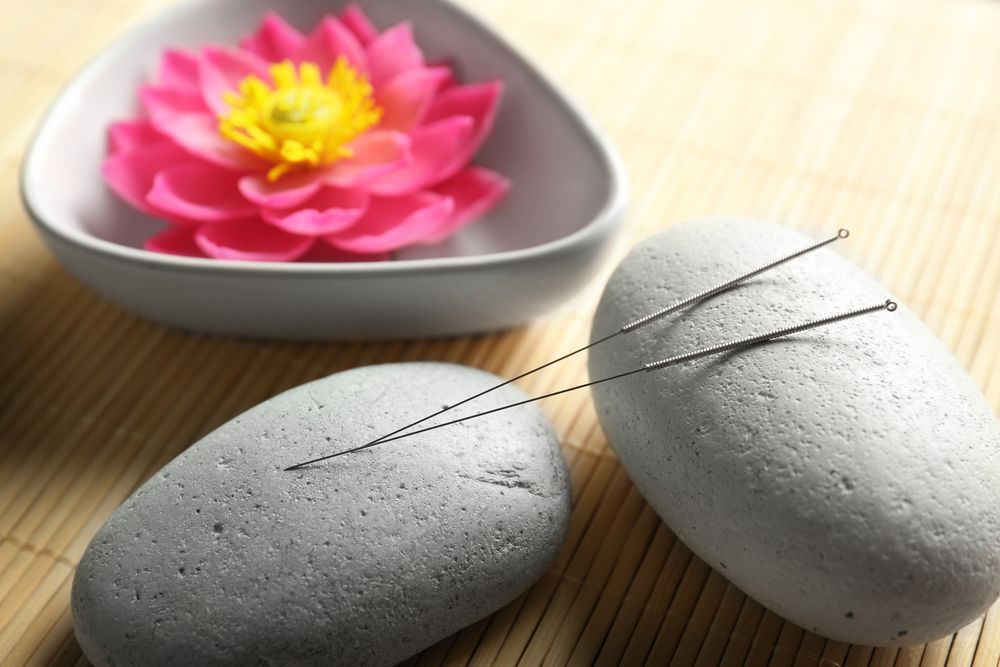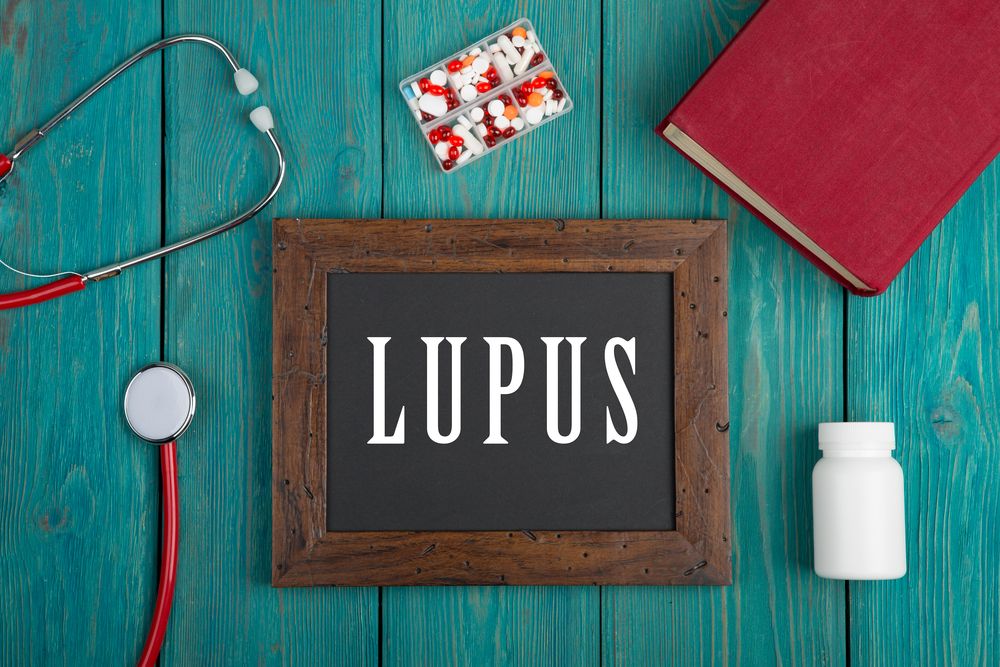Lupus is an autoimmune disease in which the body’s immune system turns on its own organs and tissues. (Learn More, What Is Lupus?)
Acupuncture is a method of traditional Chinese medicine where a practitioner inserts fine needles into specific points in the body. (Learn More, What Is Acupuncture?)
While the mechanics of acupuncture are up for debate, research supports the theory that it is a feasible and safe option for pain relief. (Learn More, Does Acupuncture Work for Lupus?)
However, acupuncture will not actually treat lupus, and the inflammation caused by lupus will require traditional pharmacotherapy.
For this reason, acupuncture might serve as a complementary form of treatment for lupus. It should not replace traditional treatment. (Learn More, A Complementary Treatment)
What Is Lupus?
Lupus is a systemic autoimmune disease in which the body’s immune system becomes compromised into attacking its own organs and tissues. With lupus, patients typically experience inflammation, which can strike many different systems in the body – the joints, skin, blood cells, kidneys, lungs, and even the brain and heart.
It is not always easy to diagnose lupus. The signs and symptoms of the condition are often very similar to those of other diseases.
There is one very distinctive sign of lupus, which is a facial rash that looks a little like butterfly wings spreading across both cheeks. However, even this does not develop in all cases of lupus.
Some people are born with a higher-than-average chance of developing lupus. For these people, certain infections, medications, or even exposure to sunlight can tip the scales toward lupus.
Women are more likely than men to get lupus. The condition is most commonly diagnosed in people aged 15 to 44, but it can affect patients of all ages. Lupus tends to develop more in African Americans, Asian Americans, and Hispanics.
There is no cure for lupus, but there are treatments that help to manage the symptoms.
What Is Acupuncture?
Acupuncture is a type of complementary and alternative medical treatment, where a practitioner inserts very slim needles into a person’s skin, at precise points in the body, to precise depths of penetration. Acupuncture is often used for pain relief, but it can be a form of treatment for many other conditions.
The nature and effectiveness of acupuncture are matters of ongoing debate. In the philosophy of ancient Chinese medicine, acupuncture balances (or restores) the flow of life energy within the body. Introducing needles into the pathways where the life energy is blocked “redirects” the energy to where it needs to go, which is the mechanic of healing.

In the eyes of Western-based medicine, the effectiveness of acupuncture is neurological. Medical News Today writes that “there is no scientific proof” that the mechanics in acupuncture theory actually exist, and it is difficult to prove or disprove their existence. However, there is extensive research that shows that acupuncture does work for some people, under certain conditions.
The neurological perspective of acupuncture is that there are certain points in the body where connective tissues, nerves, and muscles can be simultaneously stimulated. Inserting a needle into these points increases blood flow and triggers the release of endorphins, which are natural painkillers within the body. These endorphins help patients experience relief from their pain and a brief boost in feelings of well-being.
Does Acupuncture Work for Lupus?
In 1998, the JAMA Internal Medicine journal published the results of a meta-analytical review of 17 studies on the topic of using acupuncture to treat back pain. Researchers noted that acupuncture “seems to be less effective at relieving pain associated with inflammatory diseases such as lupus.”
The same research also acknowledges that some patients did experience relief in their lupus-related (or similar) pain when they received acupuncture treatments.
One of the difficulties in answering this question is that there remains a dearth of high-quality research on whether acupuncture can offer relief to lupus patients. That said, there have been studies of acupuncture (and alternative treatments) for the treatment of arthritis, which has some similarities with lupus. The positive results there suggest that acupuncture may be helpful for patients with lupus if used in conjunction with more research-backed forms of treatment.
Acupuncture practitioners and advocates also say that acupuncture might help with the chronic fatigue associated with lupus, but this point remains disputed.
While the pain and swelling symptoms of lupus are the ones that tend to get the most treatment attention, there are many other effects – skin rashes, anemia, and nephritis (inflammation of the kidneys) – for which acupuncture has not been tested or observed to have a beneficial effect.
What Can Acupuncture Do for Lupus?
Why should a patient consider acupuncture or alternative treatments for lupus? If standard treatment protocols are proving inadequate, or if medication is causing too many distressing side effects, acupuncture is an option. It is not a guaranteed solution, but it might be worth talking to a doctor and an acupuncturist.
Doctors will often prescribe non-steroidal anti-inflammatory drugs (NSAIDs) for the treatment of lupus symptoms. By and large, these medications are effective, but they can cause constipation and stomach upset. Similarly, opioids can be used in lupus treatment, but their highly addictive nature can be a deterrent.
Acupuncture treatment does not carry these risks, though it can have its own side effects. Certain patients might experience bruising, aching, and redness at the site of needle insertion. Some people can feel lightheaded or nauseated during or after treatment, especially if they are very sensitive to pain.
If the acupuncture treatment is administered by someone without sufficient training, the needle insertion can cause nerve damage, bleeding, infections, or even organ puncture. It is very important to seek out a licensed, certified acupuncturist to avoid these more serious issues.
Feasible and Safe
In 2013, the Lupus journal published the results of a randomized clinical trial on the feasibility and safety of acupuncture as a treatment for lupus. From a patient population of 24 people, 40% of those who received acupuncture experienced some improvement in the standard measurements of pain. Researchers concluded that “a 10-session course of acupuncture appears feasible and safe for patients with lupus.”
Probing deeper, some patients did report brief pain and lightheadedness while receiving their acupuncture treatment, but there were no serious adverse effects.
The researchers also noted that none of the study participants terminated their involvement in the acupuncture trials.
Another goal of the study was to examine the effects of acupuncture on pain and fatigue. While there was some general reduction in fatigue, “fewer patients attained clinical improvement on fatigue.” Researchers acknowledged that the size of the study was too small to draw any large conclusions, but stood by the perceived and potential benefits of acupuncture as a “non-pharmacological method for managing pain and potentially fatigue in lupus patients.”
They concluded that “a brief course” of acupuncture would be a realistic and acceptable form of complementary treatment for patients with lupus. Even mild pain and lightheadedness did not stop patients from completing the 10-session regime.
A Complementary Treatment
A patient who wants to try acupuncture treatment for lupus should ask their doctor or specialist for a referral. There is no evidence that acupuncture can treat the more serious problems presented by lupus (like organ inflammation), so lupus medication should never be discontinued in favor of acupuncture.
Alternative treatments work best as complementary approaches. Patients should discuss this thoroughly with their doctors before exposing themselves to another form of medical intervention.
It is also important to find a licensed, certified acupuncturist. A practitioner approved by the National Center for Complementary and Alternative Medicine will have the proper training to perform acupuncture treatments safely. They will also be working with acupuncture needles that have been approved by the U.S. Food and Drug Administration for use in acupuncture treatments.
During an acupuncture appointment, both the needles and the patient’s skin will be cleansed with alcohol. The needles should be single-use, sterilized, and immediately disposed of after the treatment.
There is still no consensus for the broad application of acupuncture as a treatment for lupus, but it can be an acceptable complementary form of treatment for the pain and fatigue associated with lupus. If standard medications do not provide enough relief from the discomfort, talk to your doctor about whether acupuncture might help.
References
Lupus. (October 2017). Mayo Clinic.
10 Early Signs of Lupus. (April 2017). Healthline.
What Really Causes the Butterfly Rash in Lupus – and What to Do About It. (March 2019). Health.
Lupus in Women. (July 2018). Centers for Disease Control and Prevention.
What Is Acupuncture? (June 2017). Live Science.
How Does Acupuncture Work? (December 2017). Medical News Today.
Acupuncture for Back Pain. (November 1998). JAMA Internal Medicine.
Acupuncture: A Treatment Tool for Lupus? (August 2018). Verywell Health.
Can Acupuncture Help Treat My Rheumatoid Arthritis? (February 2018). Healthline.
Lupus and Arthritis: What’s the Connection? (October 2016). Healthline.
Nonsteroidal Anti-inflammatory Drugs in Systemic Lupus Erythematosus. (2000). Lupus.
What Are NSAIDs for Arthritis? (December 2018). WebMD.
Acupuncture. (May 2017). Harvard Health Publishing.
Acupuncture for Systemic Lupus Erythematosus: A Pilot RCT Feasibility and Safety Study. (April 2013). Lupus.


